Saturday
Featured StoriesA Meditation on Pulse
A Shambhala monastic reflects on the meaning of recent events of violence and killing, in the light of Buddhist teachings
by Karma Lodro Gyedon
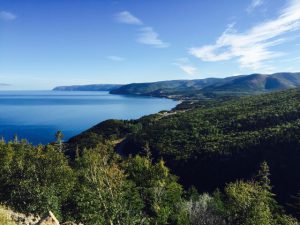 Walking through the lush green trails in Nova Scotia, it is easy to lose myself in the idyllic surroundings of my home monastery. The soft rain doesn’t detract from the beauty of spring here; the earth is lush and growing. However, my mind is contemplating the recent news of the shootings in Orlando. It’s almost unbelievable, 50 people dead, 53 people injured, and countless others affected by the actions of one murderer.
Walking through the lush green trails in Nova Scotia, it is easy to lose myself in the idyllic surroundings of my home monastery. The soft rain doesn’t detract from the beauty of spring here; the earth is lush and growing. However, my mind is contemplating the recent news of the shootings in Orlando. It’s almost unbelievable, 50 people dead, 53 people injured, and countless others affected by the actions of one murderer.
The teachings of Buddhism often talk about basic goodness. This teaching suggests that all humans are innately good, possessed of a quality also called Buddha nature. Buddha nature means that we each have what we need to completely wake up. As I walk on a path at this peaceful monastery, what I ask myself is this: What good is basic goodness if we choose to do this to one another? In the context of horrific actions like these murders in Orlando, the Buddha’s teaching’s can almost seem hostile and meaningless.
Like many people, I was shocked to learn of the act of hate committed at Pulse. Immediately I felt concern for the many friends I have in Orlando, who may have been at that very club. As I searched for details I found out that although I didn’t personally know any of his victims, I did know Omar Mateen, the young man who took 49 lives that night. He was a member of my high school community. We were in the same grade, had the same teachers, knew similar social groups.
Even though I can conjure vague memories of this person, I couldn’t say I knew him well. Nevertheless, it feels impossible to think of someone from my high school as an ISIS terrorist. I could not avoid asking myself how a community that I was a part of had failed the victims of this terrible night. In fact, I think if we as a society are to properly address our responsibilities to the victims of this crime, we ourselves need to deeply reflect before we point fingers outside of our own communities. Actions like these can force us out of a complacent view of society. It forced me to recognize the complexity of our relationships and the affect we have on one another.
The Buddha taught that our shared experience as a society is innately linked to how we each feel about ourselves. We literally create the world we live in. If we see violence in our communities, then we need look no further than our own minds to find out how these societal actions are born.
The founder of my monastery, Chögyam Trungpa Rinpoche, taught that there exists in our mind the possibility at any moment to choose between cowardice and what he calls warriorship. He used the term warrior not to mean a soldier or military person, but someone who is totally committed to awakening their heart, which in times like these can take tremendous effort. He said that one of the ways cowardice manifests is by provoking terror in our fellow human beings. To me this kind of terror is based on trying to convince people that they are less than human, that they are unworthy of even being.
What the dharma has taught me as I continue to contemplate the Orlando violence is that horrible actions like these cannot actually change our basic humanity. Our basic goodness exists outside the scope of others actions. No act of cowardice can take it away. Whether or not we live from that place, however, is where our path begins.
Besides the cowardice that manifests in individuals, there also exists a cowardice that manifests in society. Racist and homophobic actions like Mateen’s reflect not only his personal struggle but our societal struggle as well. What we share as individuals is the wish to be happy and to be free of suffering, but we all have different ideas of what will lead us to that happiness. In our search for happiness and freedom, we see how society manifests countless expressions of wisdom and confusion.
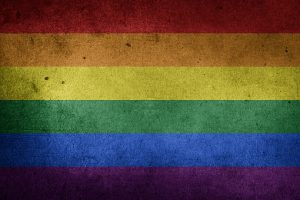 As one looks at the long list of victims from this horrific act, it is almost impossible not to feel touched by the poignancy of what it takes to live and die in the face of violence. The LGBTQ and Latino communities know what it’s like to live in the face of cowardice that comes in varying degrees every day. Acts like the violence in Orlando only serve to highlight the bravery and warriorship of these two communities. On the other hand, the actions of the perpetrators of hate and violence become almost perfect examples of cowardice.
As one looks at the long list of victims from this horrific act, it is almost impossible not to feel touched by the poignancy of what it takes to live and die in the face of violence. The LGBTQ and Latino communities know what it’s like to live in the face of cowardice that comes in varying degrees every day. Acts like the violence in Orlando only serve to highlight the bravery and warriorship of these two communities. On the other hand, the actions of the perpetrators of hate and violence become almost perfect examples of cowardice.
As a young gay man I felt a sense of defiance going to gay clubs and bars. The atmosphere felt safe and celebratory, a stark contrast to my experience at a high school, which was homophobic and fearful. Safe spaces like Pulse seemed to exist so far outside our societal sphere that the mere existence of safety in these places felt like less of a right and more like a privilege. A privilege that, compared with my publicly supported homophobic school, does not often feel aligned with conventional societal values.
Mateen’s act of violence illustrates the point that safety in these spaces was not a socially supported human value, but an act of defiance created by communities that do not have the full support of their broader communities. It also illuminates the embarrassing shame of societies that do not support the basic rights of their most vulnerable communities. The societal support in terms of the value of the gay community was further highlighted after the massacre when requests for blood poured in. Men at least in the gay community have long been barred from donating their blood, since the AIDS crisis generated concerns about the safety of such donations.
I first discovered this policy in the atmosphere of my public high school. As a man who had slept with another man, I am barred from donating my blood to organizations like the Red Cross. This example of societal confusion is one that after this night of violence we in the LGBTQ community should not have the indignity of facing. We should be legally supported in offering help to our fellow community members.
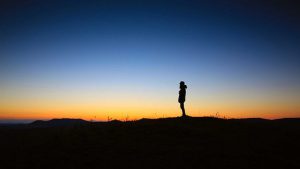 How we view society depends on our confidence in basic goodness and Buddha nature. The important point of Chögyam Trungpa Rinpoche’s teaching on cowardice and warriorship is that both of these attitudes exist in each of us. Whether we acknowledge our complexity as human beings with positives and negatives, good days and bad, or whether we live from an attitude of cowardice and create fear in order to manipulate our happiness—this choice is the whole point.
How we view society depends on our confidence in basic goodness and Buddha nature. The important point of Chögyam Trungpa Rinpoche’s teaching on cowardice and warriorship is that both of these attitudes exist in each of us. Whether we acknowledge our complexity as human beings with positives and negatives, good days and bad, or whether we live from an attitude of cowardice and create fear in order to manipulate our happiness—this choice is the whole point.
The coward’s world of attachment, aggression, and ignorance, a world motivated by fear, is in stark contrast to the warrior’s world of confidence and freedom. To the coward, the warrior is threatening, and the coward will try to diminish the warrior. But the warrior gives birth to other warriors not by ignoring fear, but by getting closer to it, embracing it with inquisitiveness and bringing it to the light of understanding.
Right now the world is full of fear. We train in warriorship—not to ignore the coward’s world of fear and hate—but to lean in, and to train ourselves in understanding the dynamics of that upheaval of mind. We train in becoming so familiar with the terrifying tricks of cowardice that they no longer control us, no longer manipulate us into harming one another. In this way, training in basic goodness is not just for ourselves, but it is an expression of our responsibility for building a good human society.
This article is dedicated to the victims killed and affected during the Orlando Pulse night-club shooting.
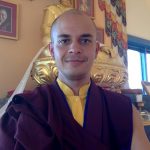 Karma Lodro Gyedon (whose name recently changed from Thubten Tingdzen) is a Buddhist practitioner and monk living at Gampo Abbey in Nova Scotia.
Karma Lodro Gyedon (whose name recently changed from Thubten Tingdzen) is a Buddhist practitioner and monk living at Gampo Abbey in Nova Scotia.

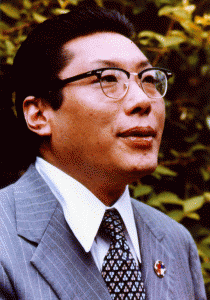
















Jul 15, 2016
Reply
“Right now the world is full of fear. We train in warriorship—not to ignore the coward’s world of fear and hate—but to lean in, and to train ourselves in understanding the dynamics of that upheaval of mind.” Beautifully said!!!
Thank you for reminding us all about these precious teachings … and how we can use them in the moment, as we witness more and more mankind’s confusion… and seek ways to compose ourselves with this senseless aggression. I am currently an ESL volunteer with Syrian families here… such warriors… and we all work daily with the same issues of confidence/compassion/overcoming fear… I am forwarding your articulate article to many friends!!! Thank you.
Jul 10, 2016
Reply
thank you for having the courage and grace to post this.